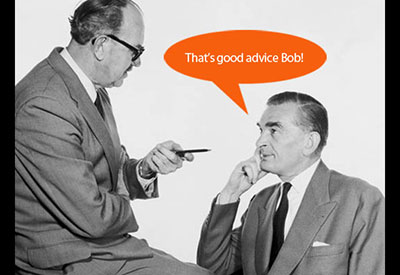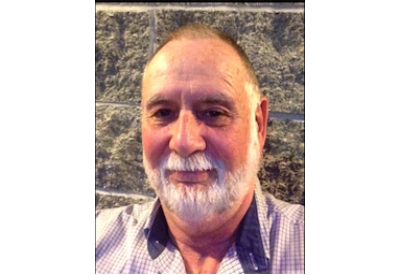Six tactiques pour maximiser la fonction achat – Tactique 4 : les techniques de vente

Voici le quatrième d’une série d’articles conçue pour aider les entrepreneurs en électricité à profiter au maximum de leur pouvoir d’achat et augmenter la profitabilité de leur entreprise. Que vous soyez dans l’équipe des acquisitions ou gestionnaire de projets et que êtes responsable de l’achat du matériel. La première tactique référait aux économies d’échelles, la deuxième touchait la valorisation des stocks. La troisième faisait réfléchir sur le temps qui court toujours sur les sites de travail. Ce quatrième porte sur les techniques de vente. Si on prend du temps pour réfléchir à notre entreprise, nous voyons que nous gardons nos connaissances à jour sur les changements au Code électrique, la gestion de l’entreprise, mais l’auteur insiste pour parler de l’importance des ventes. Dans cet article il en décrit les 5 grands principes : réciprocité, régularité, comparaison avec les autres, relations personnelles et rareté.
This article is the fourth in a series of six tactics in which the electrical contractor can maximize purchasing power and profitability though procurement.
Take a moment to think about your organization. Your field people and estimators attend classes to stay current with code changes; your project managers may take classes to further their knowledge and abilities to manage work. What would you think distributor salespeople study? Sales techniques, of course.
We can all be manipulated. When working for an electrical distributor early on in my career, I was subject to many forms of training, much of which was heavily weighted towards increasing sales. This, of course, makes sense because sales are the main determinant of a successful distributor.
Surprisingly, many people in the contracting world fail to realize the subtle tactics used to tease orders from the person making the buying decision. Fortunately though, the majority of programs used by salespeople revolve around a few basic principles of influence. I offer five of the six principles originally posed by Dr. Robert Cialdini in his bestselling book, Influence: The Psychology of Persuasion.
Reciprocity
This is by far the most common form of persuasion used by salespeople. Bringing in bagels or doughnuts for the office or taking people out to lunch would be examples of the reciprocity principle in action. We often like to think of ourselves as immune to something as trivial as this to affect our decisions, but research backs up the power of this principle to deliver big results, even when we choose to think it can’t possibly have an effect on us personally.
Consistency
Research has shown the innate need for people to stay congruent in their decisions. The consistency principle works in line with a theory proposed by Leon Festinger in 1957 known as cognitive dissonance. The theory simply states that we strive to keep our thoughts and actions consistent and experience stress if inconsistency is introduced. A salesperson may take advantage of this principle by suggesting a verbal confirmation of your intention to work with them on a given project. If you succumb to this small request, you are setting yourself up to agree to a larger commitment later due to this principle. The bottom line is, if you agree to a small commitment up front, it becomes more difficult to decline a larger commitment later and good salespeople know this.
Social proof
This principle is not as widely used by distributor salespeople, but it does come into play. When a salesperson tells you about how your main competitor just purchased a large amount of the latest electrical device or has saved 25% on labour costs due to a product the salesperson just happens to be stocking, this principle is at work. This principle plays off people’s tendency to act based on the actions of others, and in this case, the notion of your competitor gaining an advantage makes this principle even more salient to a savvy salesperson working from this principle.
Liking
This principle is quite logical and straight forward. It is no secret to salespeople that buyers buy from those they like. Salespeople use this principle often, yet it is the one principle that takes the longest to develop. When a salesperson is taking you or your employees to a sporting event or other entertainment venue, their underlying reason is to develop a relationship in hopes of using this to their advantage. This is not to say that a relationship with a salesperson is bad, only that it may affect your judgement when deciding on where to place your next purchase order.
Scarcity
Many people think of scarcity in relation to actual material goods. In this instance, I am concentrating on the scarcity of time. Time is often used as a means to motivate one to buy. Usually a salesperson will use this principle in relation to a specific price point for material expiring after a certain date. In reality, this is usually just a discount offered to entice a fast decision. While not deceptive in nature, the principle can act as a lever to suspend any further investigation and simply make the purchase. This is fine if you are ready to buy at this point, but beware of making a buying decision solely because an offer is soon to expire.
So the question becomes: How can you defend against such principles and be sure you are making the best buying decision? The first step is realizing the principles are always being used to some degree and understand the psychology behind them. The second step is using all available information to arrive at a decision based on solid metrics and logic. As business grows and the pace of work increases, it becomes easier to get caught in some of these influence traps. Taking the time to properly evaluate all options and values can pay off in a big way.
Whenever I am at the cusp of making a buying decision, my final thought before issuing a purchase order is this: What will produce the best outcome for my company? I have found that asking this simple question has the effect of focusing on the true purpose I am striving to accomplish and helps filter out any personal biases I may have.
At the end of the day, we can all be influenced, but identifying some of the most commonly used principles behind those influences can offer us protection against being unknowingly led down a path that may not be the best course. Keeping the principles listed above in mind when reviewing your next project buyout will definitely help you become a more consistent and better buyer.
This article has been reprinted with the permission of Electrical Contractor Magazine. These articles originally appeared on ECmag.com in 2015.
Next in the series: know your pricing.











